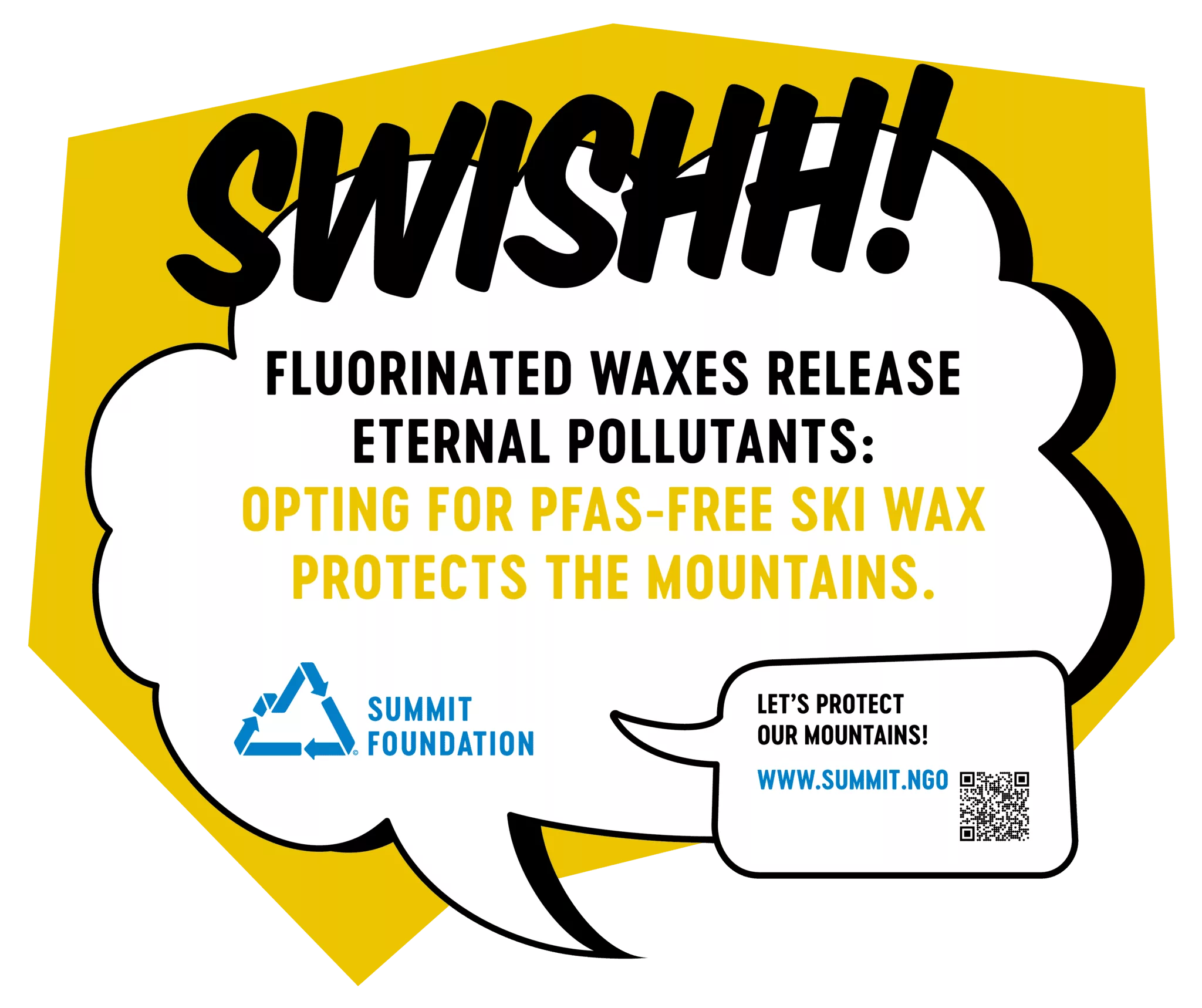


• PFAS comprise more than 10,000 synthetic molecules, widely used in industrial processes and consumer products. They are chains of carbon and fluorine atoms.
• They are persistent in the environment and harmful to wildlife and human health.
• PFAS are found in ski waxes and are released into the environment through the abrasion of skis.
PFAS (per- and polyfluoroalkyl substances) refer to a family of more than 10,000 synthetic molecules¹. They consist of chains of carbon and fluorine atoms, of varying lengths. These molecules are valued for their properties², including non-stick, waterproofing and surfactant characteristics, as well as their resistance to heat and chemical stability. PFAS are used in many industrial processes and everyday consumer products³ (for example: frying pans, waterproofing products, etc.). Among these uses is ski waxing. Fluorinated waxes are known to improve gliding performance⁴.
However, PFAS are harmful to the environment and human health⁵. PFAS are often called forever chemicals because, due to their chemical stability, they persist in the environment. PFAS can enter organisms through various pathways. The main route is oral — notably through water, food, and breast milk for young children. They can also be absorbed through the skin or inhaled. PFAS have toxic effects⁶ on humans (and also on animals). The list is long, but among the known effects are carcinogenicity, immunotoxicity, reduced birth weight in infants, and endocrine disruption.
Skiing is therefore a source of PFAS pollution. During the waxing process, 80% of the product⁷ is lost, which can be problematic if it is not properly disposed of and may lead to PFAS contamination through inhalation. The remaining 20% can enter the environment during your days on the slopes through ski abrasion. Studies have shown a higher presence of PFAS in ski areas⁸ compared to non-ski areas. A report⁹ produced by EPFL, in collaboration with Summit Foundation, highlighted the presence of PFAS in Swiss ski resorts.
Although the FIS (International Ski Federation) has banned fluorinated waxes in competitions¹⁰, they are still available to the general public. Therefore, check with your sports shop to use a PFAS-free wax. Moreover, if you wax your skis yourself, remember to wear a mask to avoid inhaling harmful particles.
PFAS are harmful to nature and our health; let’s take collective action to ban them from our environment.
If you’re looking for a wax without fluorine or PFAS, the range available today is quite broad. However, stay alert: some manufacturers replace fluorine with other potentially harmful substances, without always clearly indicating their composition.
That is why the Foundation recommends the wax Isantin, developed by former ETH Zurich chemist Peter Bützer. Its formula, which is fully public and based on indigo (a plant-based dye), makes it a safer and more environmentally friendly alternative.
Other brands also offer interesting options, including mountainFLOW (United States) and NZERO (Spain), which sell waxes made exclusively from plant-based ingredients.
